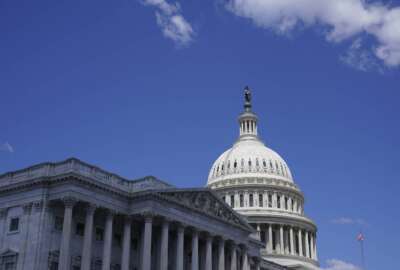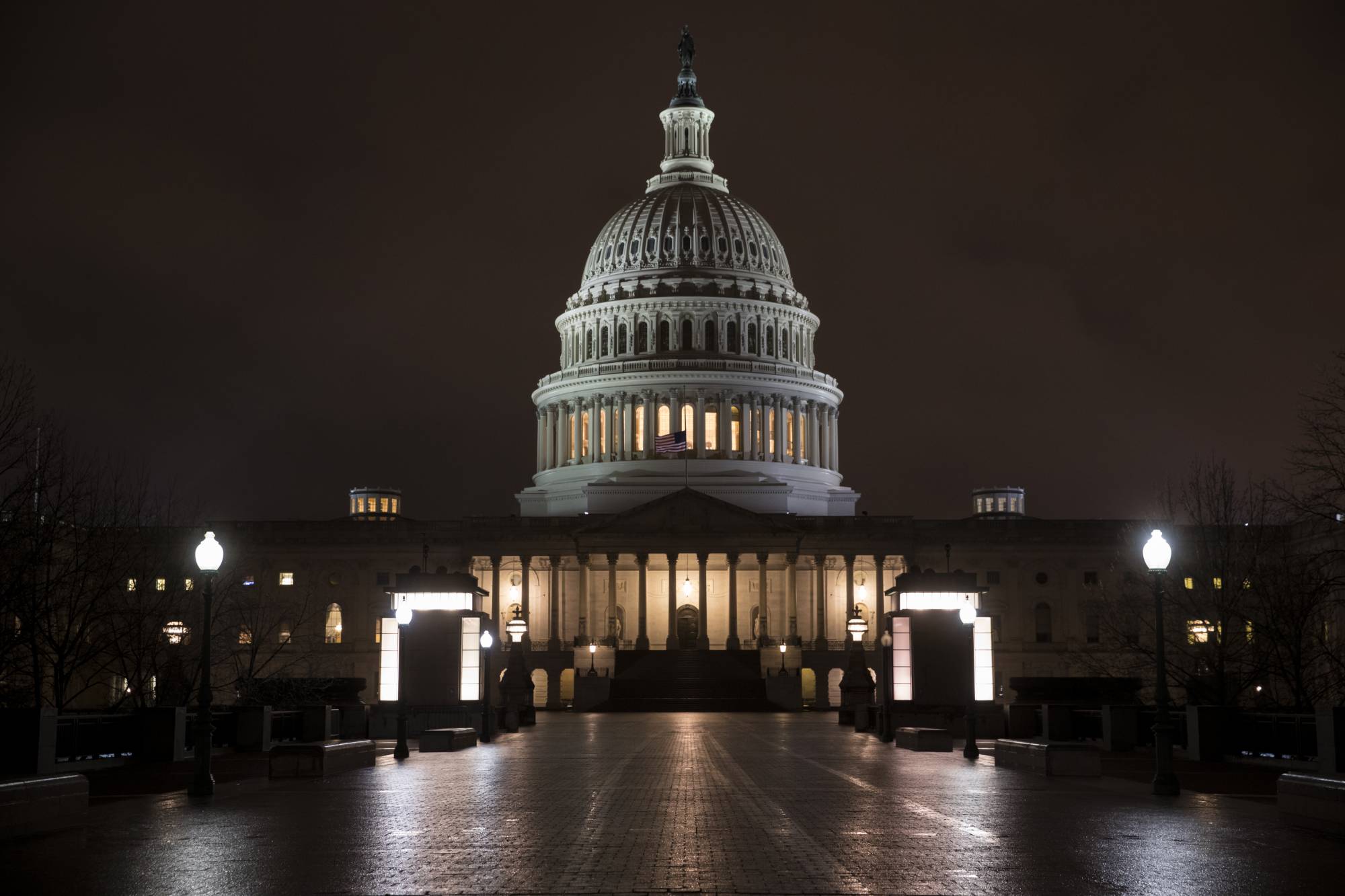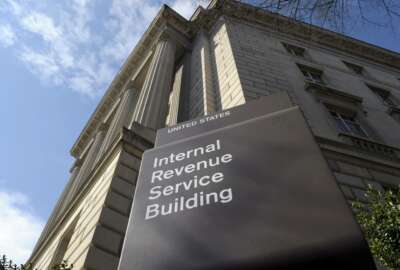
Congress sets a deadline for federal hiring reform in omnibus spending bill
The omnibus spending bill would give the Office of Personnel Management and the Office of Management and Budget 120 days to come up with a plan to speed up the...
The $1.7 trillion federal spending package that Congress unveiled this week would task the Office of Personnel Management and the Office of Management and Budget with looking more deeply at one longstanding challenge: reforming the federal hiring process.
It’s a common topic of concern for the federal workforce, drawing conversations not only within Congress, but also at the White House and within agencies themselves.
“There is concern about the length of time it takes the federal government to hire qualified employees and the difficulty talented individuals have in applying for and securing federal employment,” Senate appropriators said in an explanatory statement of the financial services and general government section of the omnibus spending bill.
The omnibus would put into motion some initial plans to try to, at least in part, reform and expedite the federal hiring process. Specifically, the legislation would task OPM and OMB with reporting to Congress within 120 days — about four months — after the bill is enacted with a plan for reducing the time it takes to hire an applicant to a federal government position.
Congress emphasized OMB and OPM’s role in helping agencies with their individual hiring processes.
“OMB and OPM are also expected to actively assist agencies in developing highly qualified talent teams to ensure each agency has dedicated resources and support for improving their hiring system and to work proactively with agencies seeking specific hiring authorities to address pressing government priorities,” Senate appropriators said.
OPM has already started to make some piecemeal changes to the federal hiring process, for instance, by creating a new hiring authority targeted at recent graduates last year, along with an upcoming expansion of temporary and term appointments for positions in science, technology, engineering and math (STEM).
OPM, along with the Chief Human Capital Officers (CHCO) Council, have also recently said they plan to use lessons learned from expedited hiring under the Infrastructure Investment and Jobs Act, and apply it to agencies’ hiring practices more broadly.
“There’s a lot of good work that has been piloted, and new approaches taken, that we think can be scaled or replicated in other parts of government,” said Rob Shriver, OPM’s newly Senate-confirmed deputy director, at a recent CHCO Council public meeting.
Overall, the omnibus provides $422 million for OPM, $49 million over the 2022 enacted level. About $19.3 million of the appropriations would be designated for work on IT modernization. Additionally, OPM would have to continue monthly reports on how quickly the agency is working through its retirement processing.
“OPM is expected to continue to make IT modernization a high priority and to make continual progress,” Senate appropriators said.
In another provision, the bill called on OPM to consider cost savings and efficiencies of implementing more self-service tools for the Federal Employees Health Benefits (FEHB) Program, particularly aiming to promote more transparency of prescription drug prices. OPM would have to report to Congress on its findings within a year after the bill’s enactment.
The omnibus also referenced some concerns around the transparency of political appointees, part of which is addressed in the 2023 National Defense Authorization Act through the inclusion of the PLUM Act — although that language wasn’t part of the government spending package. The PLUM Act would create a digital and more up-to-date roster of political appointees, which advocates have said would improve government transparency. Appropriators recommended that instead of creating a new online database, as the PLUM Act would do, OPM should include information on political appointees in FedScope, the agency’s already-existing database of federal workforce information.
In addition to charging OPM with reviewing changes to pay and position classifications for federal firefighters, the omnibus tasks the agency with looking at ways to improve recruitment and retention of federal law enforcement officers, particularly to review pay levels for those federal employees.
A couple key items in the omnibus would also consider the role of telework at agencies. The Treasury Department, as well as the IRS, would be tasked with reporting to Congress within 120 days on the impact of telework on recruitment and retention. The General Services Administration would also be required to periodically brief lawmakers on how to reduce office space requirements based on lessons learned from agencies’ use of telework during the COVID-19 pandemic.
One provision aiming to reform part of the federal hiring process was notably left out of the omnibus. Some federal advocacy groups were hoping for the inclusion of language related to the Chance to Compete Act. The bill, which lawmakers introduced earlier this year, and which advanced out of the House Committee on Oversight and Reform, would push federal agencies toward a larger focus on skills-based hiring by looking at the skills of candidates rather than their educational backgrounds. The bill would also update federal job qualification standards and candidate assessments. But ultimately, the omnibus didn’t include related language.
Additionally, earlier language from Democrats that attempted to prevent a potential future Schedule F-type policy was missing from the omnibus.
The Senate passed the omnibus in a vote of 68 to 29 on Thursday. Neither Democrats nor Republicans saw all of their priorities in the text of the legislation. The alternative would likely be another continuing resolution, something that the Senate Appropriations Committee is trying to avoid.
“Without a clear path forward based on a bipartisan framework, punting on our responsibility to fund the federal government risks a full-year continuing resolution … We have a bipartisan bill. We have a path forward now,” Committee Chairman Patrick Leahy (D-Vt.) said in a Dec. 20 statement.
“After many months of ongoing negotiations, we have reached an agreement on an omnibus appropriations package to fund the government for the remainder of the current fiscal year,” Committee Vice Chairman Richard Shelby (R-Ala.) added in a Dec. 20 press statement. “This process was far from perfect, but ultimately it allowed Republican redlines to be adhered to and because of that I will urge my colleagues to support this package. We need to do our job and fund the government.”
To avoid either another continuing resolution or a partial government shutdown, the House must still pass the omnibus, and Biden must sign it into law, by midnight on Dec. 23.
Copyright © 2025 Federal News Network. All rights reserved. This website is not intended for users located within the European Economic Area.
Drew Friedman is a workforce, pay and benefits reporter for Federal News Network.
Follow @dfriedmanWFED
Related Stories





